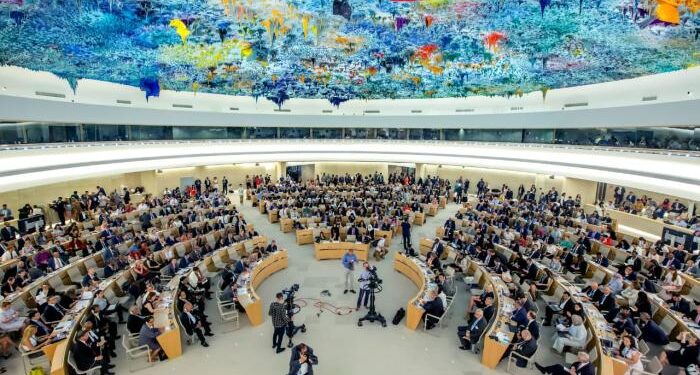The United Nations Human Rights Council has been petitioned to convene a special session to discuss the human rights crisis in Ethiopia and set up an investigative mechanism.
“We call on the HRC to hold a special session and to urgently establish an international investigative mechanism. We believe that a special session on Ethiopia is essential to ensure international scrutiny of the situation and to establish a mechanism that will provide justice and accountability for victims,” the letter signed by four human rights non-governmental organisations (NGOS) said.
The petition cited a joint report by the Office of the UN High Commissioner for Human Rights (OHCHR) and the Ethiopian Human Rights Commission (EHRC) that said their investigation had found evidence of widespread violations of international human rights, humanitarian, and refugee law by all parties to the conflict in Tigray.
“The report also found that many of these violations and abuses may amount to war crimes and crimes against humanity. The report concluded that ‘the seriousness of these allegations calls for independent investigations and appropriate prosecution of those responsible’, and said that an international, independent mechanism can be established to collect evidence of the atrocities in preparation for future criminal prosecution,” said Amnesty International, DefendDefenders (East and Horn of Africa Human Rights Defenders Project), Global Centre for the Responsibility to Protect, and Human Rights Watch.
They further asked the permanent representatives of member and observer states of the council to “…support the adoption by the HRC of a resolution that establishes an independent investigative mechanism mandated to investigate, report on, and to collect and preserve evidence of alleged violations and abuses of international human rights law and violations of international humanitarian law, some of which may amount to atrocity crimes, committed by all parties to the conflict.”
The NGOS said the mechanism should be mandated to report regularly to the HRC, as well as other UN decision-making bodies, and to present recommendations on the prevention of further human rights violations and abuses and ensure accountability.
“It should be designed to be complementary to regional efforts to address the crisis,” the organisations added in their letter dated November 22, 2021.
The joint OHCHR and EHRC report was released on November 3, 2021. It covered the period from November 3, 2020, when the armed conflict began between the Ethiopian National Defence Forces, the Eritrean Defence Forces, and the Tigrayan Special Forces, until June 28, 2021, when the Ethiopian government declared a unilateral ceasefire.
The organisations said that the conflict has spread to neighbouring regions, threatening millions of civilians and exposing them to serious abuses. Viloations linked to the conflict are also taking place outside the affected zones, the High Commissioner reported last week, adding that scores of ethnic Tigrayans have been arbitrarily arrested, including in Addis Ababa, in the past few weeks.
The Human Rights Council holds three regular sessions a year – in March, June, and September – for a total of at least 10 weeks. It can decide to hold a special session “to address human rights violations and emergencies” if at least one-third – or 16 – of its 47 member states request.
The council held a special session on November 5, 2021 to discuss the situation in Sudan after the military takeover of October 25 and the crackdown on protests that followed.







